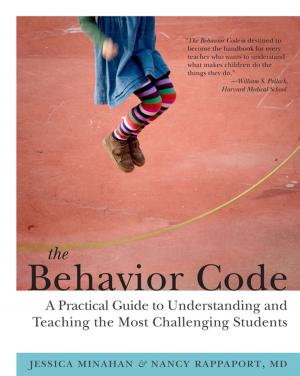Collateral Damage
How High-Stakes Testing Corrupts America's Schools
Nonfiction, Reference & Language, Education & Teaching, Educational Theory, Testing & Measurement, Educational Reform| Author: | Sharon L. Nichols, David C. Berliner | ISBN: | 9781612500805 |
| Publisher: | Harvard Education Press | Publication: | March 1, 2007 |
| Imprint: | Harvard Education Press | Language: | English |
| Author: | Sharon L. Nichols, David C. Berliner |
| ISBN: | 9781612500805 |
| Publisher: | Harvard Education Press |
| Publication: | March 1, 2007 |
| Imprint: | Harvard Education Press |
| Language: | English |
Drawing on their extensive research, Nichols and Berliner document and categorize the ways that high-stakes testing threatens the purposes and ideals of the American education system.
For more than a decade, the debate over high-stakes testing has dominated the field of education. This passionate and provocative book provides a fresh perspective on the issue and powerful ammunition for opponents of high-stakes tests.
Their analysis is grounded in the application of Campbell’s Law, which posits that the greater the social consequences associated with a quantitative indicator (such as test scores), the more likely it is that the indicator itself will become corrupted—and the more likely it is that the use of the indicator will corrupt the social processes it was intended to monitor.
Nichols and Berliner illustrate both aspects of this “corruption,” showing how the pressures of high-stakes testing erode the validity of test scores and distort the integrity of the education system. Their analysis provides a coherent and comprehensive intellectual framework for the wide-ranging arguments against high-stakes testing, while putting a compelling human face on the data marshalled in support of those arguments.
Drawing on their extensive research, Nichols and Berliner document and categorize the ways that high-stakes testing threatens the purposes and ideals of the American education system.
For more than a decade, the debate over high-stakes testing has dominated the field of education. This passionate and provocative book provides a fresh perspective on the issue and powerful ammunition for opponents of high-stakes tests.
Their analysis is grounded in the application of Campbell’s Law, which posits that the greater the social consequences associated with a quantitative indicator (such as test scores), the more likely it is that the indicator itself will become corrupted—and the more likely it is that the use of the indicator will corrupt the social processes it was intended to monitor.
Nichols and Berliner illustrate both aspects of this “corruption,” showing how the pressures of high-stakes testing erode the validity of test scores and distort the integrity of the education system. Their analysis provides a coherent and comprehensive intellectual framework for the wide-ranging arguments against high-stakes testing, while putting a compelling human face on the data marshalled in support of those arguments.















